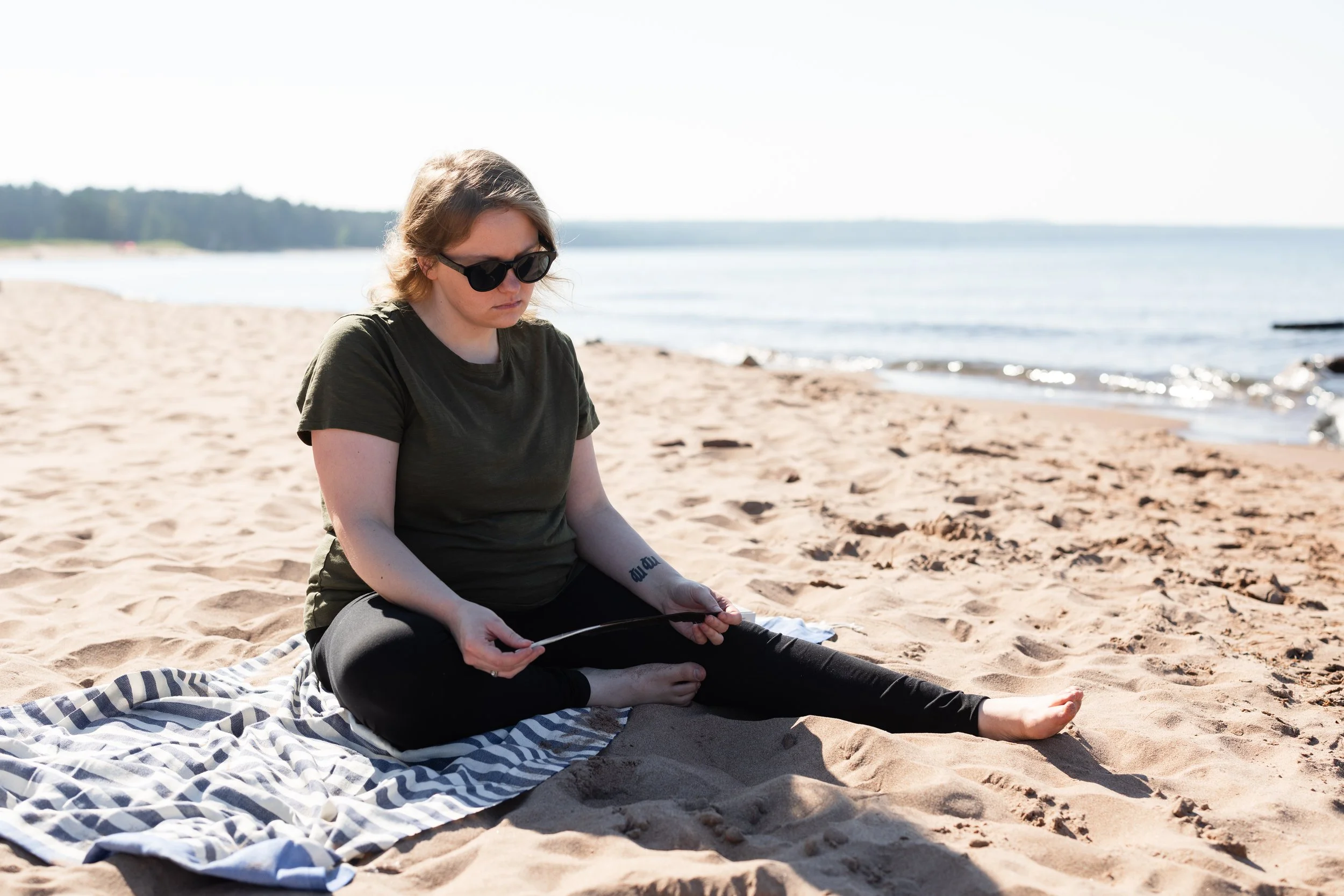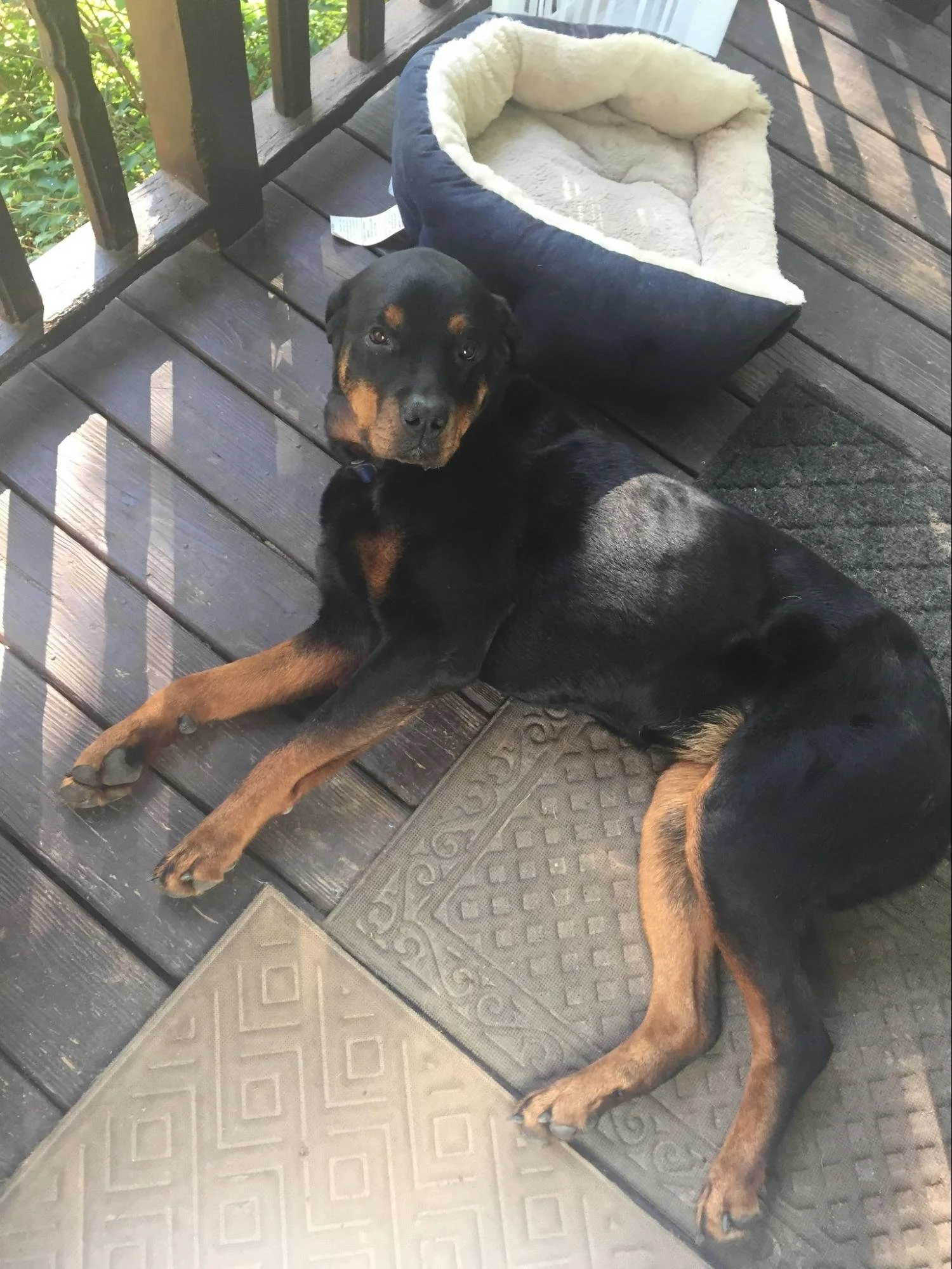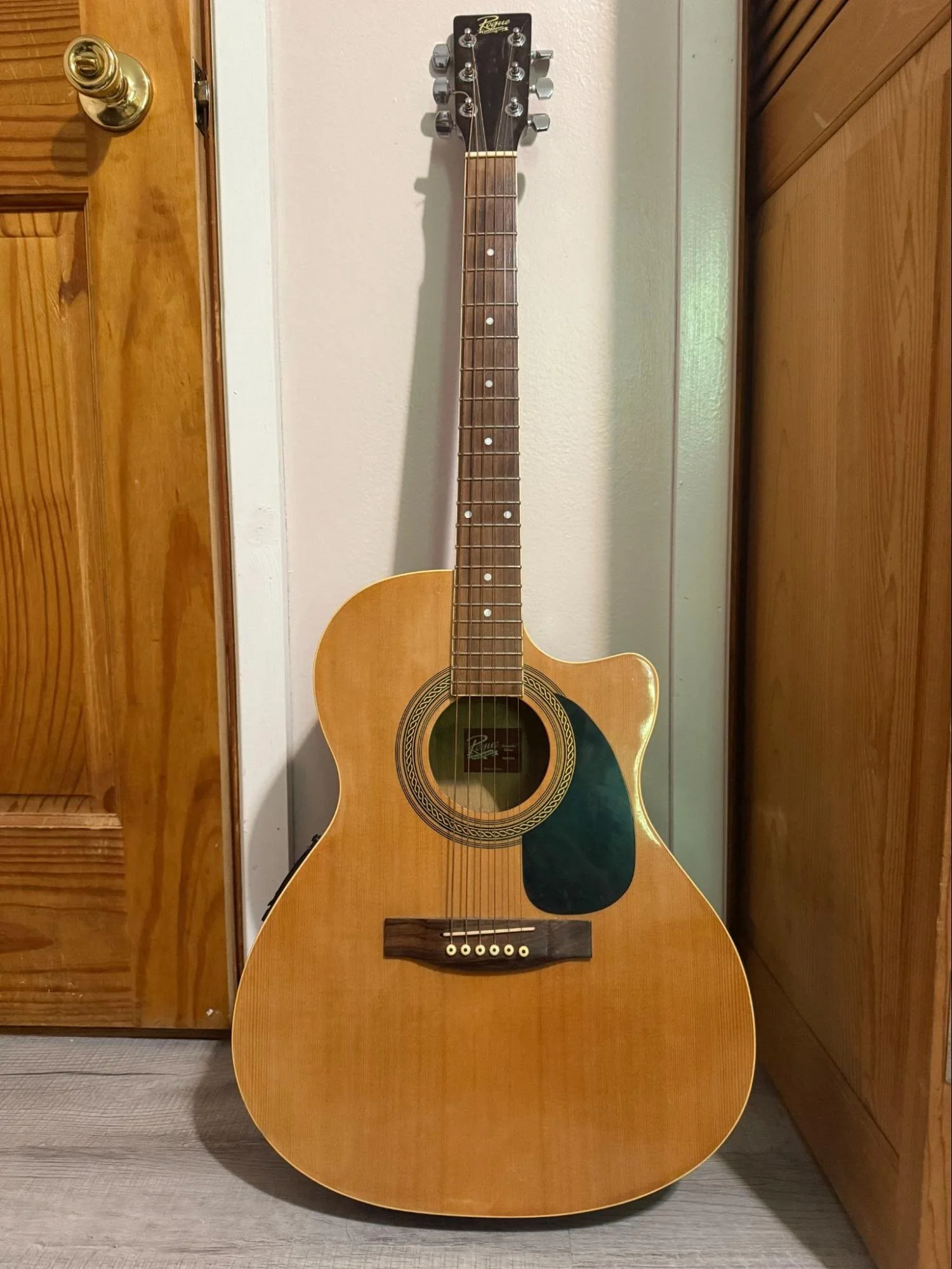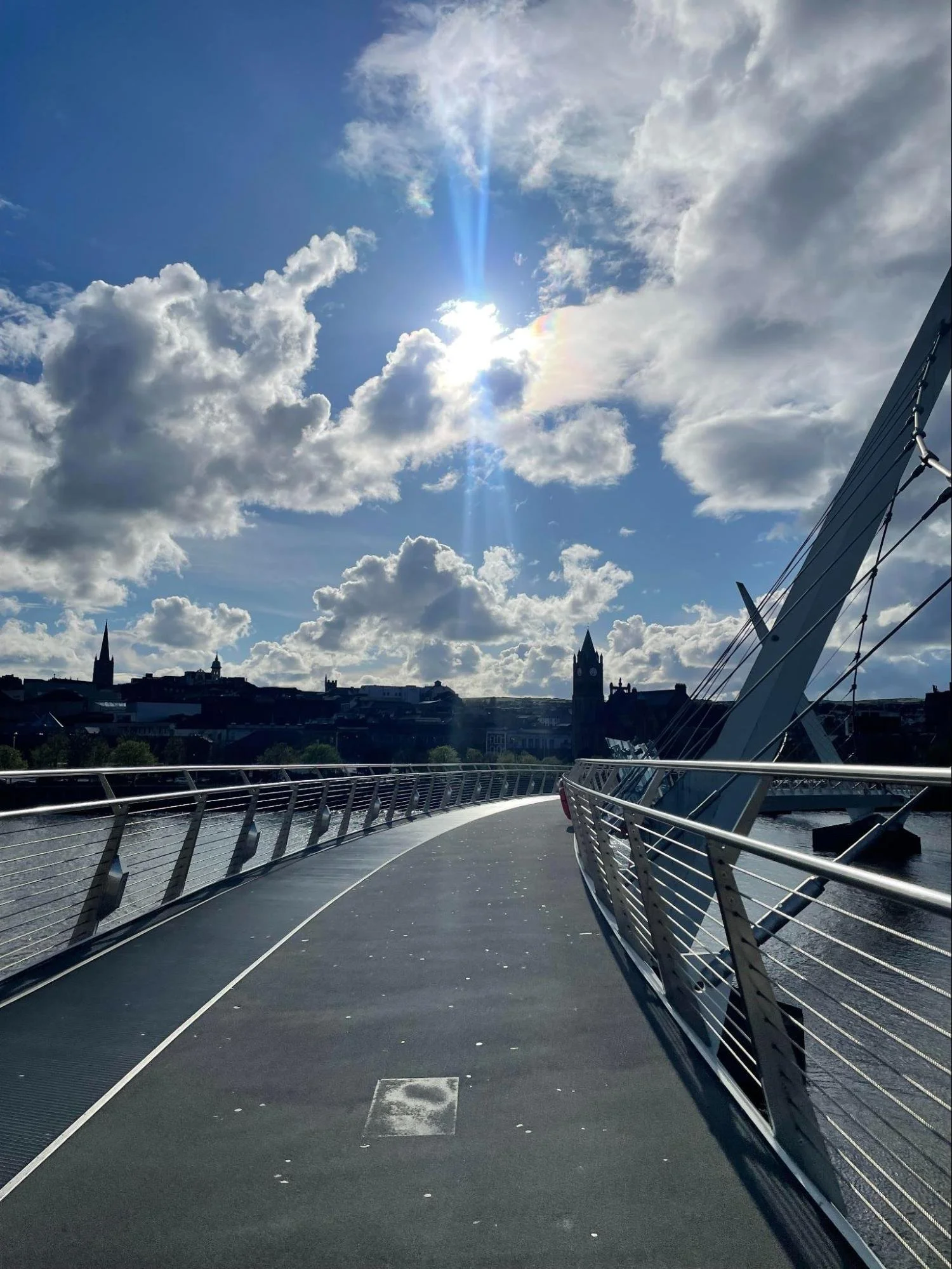What I’ve Learned Since Losing My Father
Written by Bridget Moran, LMSW, CAADC
My father died unexpectedly in November. When I first thought about writing about my experience losing him, I imagined myself putting up a post for Father’s Day. Clearly, this did not happen. I thought writing it would be easy. I imagined it flowing right out of me. I even had a list of bullet points. I can be incredibly avoidant at times, and it took me a while to realize this is what was happening.
As the weeks went by I became increasingly frustrated with myself. Writing was truly the one thing I had a talent for, outside of my work as a therapist. Although even my job took work. I had to build skill at it. Writing was something I had seen myself as inherently good at without much effort. But even so, it wasn’t something I had nurtured, so when I went back to it, I found my skills to be very rusty.
In writing about it, I find myself riding a tough line between being honest and vulnerable and oversharing. Part of me doesn’t care, but part of me cares all too much. I like my anonymity, especially in my work as a therapist. Despite my difficulty with writing and my preference for anonymity, I’ve always had a clear voice. Even though people say they have a hard time reading me, I think most can agree I’m very open and honest in person, despite my hesitancy to share online.
I spoke at the funerals of two close relatives. I wrote my father’s obituary and wrote a post on my sister’s Facebook about him shortly after his death. I felt the need to say something. I’m not good at the logistical stuff. I don’t have the patience or temperament to sit on hold with social security or deal with the complexities of managing a will. My aunt and sister were there to help my mom through that, and they did a very good job at that.
I think it’s quick and easy for me to speak up right after a loss. Give it a few months though, and thoughts become far more complicated and difficult to articulate. I became irritated and impatient with myself, rather than giving myself the space I deserved. The truth is, I don’t think it’s possible to write a perfect narrative after a loved one dies tragically and unexpectedly. But in the absence of that, I’ll try to share some of the wisdom I gained from having lost him.
Nothing prepares you for the grief of losing a parent. My mom was thirty-seven and my dad was forty when I was born. Their mortality had always been a reality for me. I had a breakdown one day at an early age when I began to think about them passing. Similarly, a few weeks after my dad died, I did have a breakdown. All alone, by myself. It was quick and acute but so incredibly painful. In that moment, I reverted to being a toddler on some level and I was so sad that my dad had left me.
My dad’s favorite dog of all time, our Rottweiler Zebby. She passed in 2020 and I don’t think she would’ve survived without my dad.
My dad wasn’t supposed to die yet. He was only sixty-eight. He had two small grandchildren. We had a trip to Ireland planned with plane tickets booked and everything. It was his job to do things like maintain my parent’s house and change the brakes on my car. He filled a role in many people’s lives, as a friend, a bandmate, a local acquaintance. His absence has been felt heavily.
All losses are different. This should be obvious, but to me, it wasn’t. My dad died unexpectedly. A far departure from the previous deaths I had experienced. For me, this made the pain of the loss exponentially worse. But I distracted myself, and I did so well. I think on a systems level while also paying attention to details. After so many losses, my family felt like a sinking ship, so I spent a lot of time assessing the damage and trying to patch holes. It was easier, and in truth, it made me feel more secure.
This led me to try to control certain aspects of other’s grief at times. This sounds worse than it is. But without getting into too much detail, I tried very hard to get a family member to avoid something that I knew would be traumatic for me. In the end, I did avoid that thing, and it ended up being the right choice. It would’ve brought no peace to me, but this wasn’t the case for my relative.
I also kept myself busy. I was on my work computer the day after he died sending faxes and responding to emails. I also tasked myself with going through every box in my parent’s basement. Maybe my need to know everything that was down there was also tied to security in some way. I don’t know.
I found some of my dad’s old things. This included dozens of records and a box full of things tied to important memories. He had several pictures of himself as a schoolboy at St. Robert’s in Flushing, which was interesting to me as he found his schooling there to be an overwhelmingly negative experience. There were also several letters from multiple loved ones. Surprisingly, the one that hit me the most was from my uncle Jack. I had only met Jack once nearly twenty years prior. He was born out of wedlock to my grandmother in 1941 and was given up for adoption. He reconnected with my family sometime in the 1980s. Despite not growing up together and having an age difference of fifteen years, he and my dad had an undeniable connection. They talked on the phone at least once a month and my dad had made it a point to visit him a few times. The letter my uncle wrote spoke about their first meeting and my uncle’s awe at my grandmother. It was a beautiful read, but painful and one I had not been emotionally prepared for.
This is a digression, but my uncle died in 2023. I attended his funeral in Lindenhurst, a fairly wealthy suburb of Chicago. His family was nice, but had my dad, sister, aunt, and uncle not been there I would have felt incredibly out of place.
My dad’s guitar. He formed a band in 1978 that lasted until the time of his death.
Another reaction I had to my father’s passing was to expose myself to more trauma. I watched The Iron Claw, a movie based on a true story about a family of brothers who became professional wrestlers. Most of them ended up taking their own lives. I read the first half of Man’s Search for Meaning, a book written by a Holocaust survivor. I also watched a four-hour documentary called When the Levees Broke, a documentary about Hurricane Katrina. I wasn’t trying to minimize my own suffering, and I don’t think this is the right approach for everyone, but I needed to feel that it wasn’t special or unique. There’s actually a term for this, common humanity. It’s one of the core components of self-compassion.
I did end up going to Ireland with my dad’s sister. It was nine very busy days, a good portion of which was spent on buses. My dad had been set to drive, but neither my aunt nor I were comfortable with the idea of doing so in a foreign country. So I had to get refunds for both the vehicle I had already rented and my dad’s plane ticket. It was far less of a headache than I expected.
The trip was wonderful. I had always wanted to go to Ireland. It wouldn’t have been my first pick, but my dad wanted to connect with our heritage. We had talked about it and he knew it was gauche to bring up Irish ancestry while in the country. When people asked, I said I was, “Irish in the same way that Olive Garden is Italian.” The comparison itself highlighted how American I was. I had no idea if the average Irish person would have any knowledge of a decidedly American restaurant chain.
It was an amazing trip. The people were the nicest I had ever met in the United States outside of maybe Savannah, Georgia and I’ve done a lot of traveling. Northern Ireland was my favorite part, and I spent three days in Derry. It was emotional for me. My father had frequently talked about Bobby Sands, a member of the Irish Republican Army, who died after a sixty-six day hunger strike while in prison. My dad watched news coverage every day of his strike until his eventual death. Then there I was at a memorial for Bobby Sands and the other hunger strikers. It was an extremely humbling experience, and one of the two times I became emotional on the trip. The other time was the day I arrived, after well over thirty hours with no sleep following a red eye.
Being in Ireland, and Derry in particular, was a humbling experience. The level of intergenerational trauma was high and evident. I met a young man who told me about the high rates of drug addiction and suicide there. My family left far before The Troubles. But the intergenerational trauma from centuries of invasions and my ancestors being forced out by the famine is evident. Epigenetics posits that trauma impacts the genetics we pass down to our children. This has been most heavily studied in the children of Holocaust survivors. I understand this may seem like a stretch if you don’t know a lot about intergenerational trauma or haven’t seen it in your own family. But I truly believe that despite my great-great grandpa leaving Ireland around 170 years ago, he passed down his trauma.
The Peace Bridge in Derry
My dad would have loved Ireland. We would have been irritated at each other nearly the whole trip simply due to our personalities and neuroses, but we would have had a very memorable experience. I’m very sad he missed it. I’m also just generally sad he’s not here. Father’s Day just passed, as did my nephew’s birthday. Two events in an ever-growing list that he wasn’t there for. My brain is good at emotional dissociation, even when I don’t want it to be. Writing like this is one of the few ways I can evoke emotions. But again, I think this is another area where I have to be patient with myself. Grief is never truly over, and there’s no timeline for processing a traumatic loss. I suppose that would be the biggest message I want to get across with this post. The pain of losing your loved one never fully goes away. In my experience, it’s like a constant background noise. Sometimes it reduces in intensity to the point where you forget it’s there, and other times it’s so intrusive that ignoring it is not an option. It’s a noise I’ll happily live with in exchange for the years I had with my loved ones.





